Can Xue
Can Xue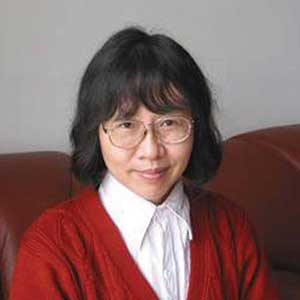 (Deng Xiaohua), whose pseudonym in Chinese means both the dirty snow that refuses to melt and the purest snow at the top of a high mountain, was born in 1953 in Changsha City, Hunan Province, in southern China. She lived in Changsha until 2001, when she and her husband moved to Beijing. Regarded as one of the most experimental writers in the world by some literary scholars and readers, Can Xue describes her works as “soul literature” or “life literature.” She is the author of numerous short-story collections and four novels. Seven of her works have been published in English, including Dialogues in Paradise (Northwestern University Press, 1989), Old Floating Cloud: Two Novellas (Northwestern University Press, 1991), The Embroidered Shoes (Henry Holt, 1997), Blue Light in the Sky and Other Stories (New Directions, 2006), Five Spice Street (Yale University Press, 2009), Vertical Motion (Open Letter, 2011), and The Last Lover (Yale University Press, 2014). She has also published books of commentary on Borges, Shakespeare, Dante, Goethe, Calvino, Kafka, and Bruno Schulz. The English translation of her novel The Last Lover won the 2015 Best Translated Book Award. She claims that all of her works are from the experiments in which she takes herself as the subject. Nominated by Porochista Khakpour / Representative work: Five Spice Street
(Deng Xiaohua), whose pseudonym in Chinese means both the dirty snow that refuses to melt and the purest snow at the top of a high mountain, was born in 1953 in Changsha City, Hunan Province, in southern China. She lived in Changsha until 2001, when she and her husband moved to Beijing. Regarded as one of the most experimental writers in the world by some literary scholars and readers, Can Xue describes her works as “soul literature” or “life literature.” She is the author of numerous short-story collections and four novels. Seven of her works have been published in English, including Dialogues in Paradise (Northwestern University Press, 1989), Old Floating Cloud: Two Novellas (Northwestern University Press, 1991), The Embroidered Shoes (Henry Holt, 1997), Blue Light in the Sky and Other Stories (New Directions, 2006), Five Spice Street (Yale University Press, 2009), Vertical Motion (Open Letter, 2011), and The Last Lover (Yale University Press, 2014). She has also published books of commentary on Borges, Shakespeare, Dante, Goethe, Calvino, Kafka, and Bruno Schulz. The English translation of her novel The Last Lover won the 2015 Best Translated Book Award. She claims that all of her works are from the experiments in which she takes herself as the subject. Nominated by Porochista Khakpour / Representative work: Five Spice Street
Caryl Churchill
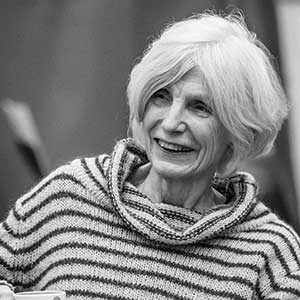 Playwright Caryl Churchill was born in September 1938 in London, where she is still based. Churchill is a dramatist known for her use of non-naturalistic techniques and feminist themes, dramatization of the abuses of power, and exploration of sexual politics. Since her first professional stage production, Owners, which premiered at the Royal Court Theatre in London in 1971, Churchill has gone on to become one of the most influential playwrights of the modern era. She is the author of almost three dozen plays, some of which—namely Cloud Nine (1979), Top Girls (1982), Serious Money (1987), The Skriker (1994), A Number (2002), and Love and Information (2012)—are considered seminal works of twentieth- and twenty-first-century theater. Over her career, Churchill has been honored with four Obie Awards, three Susan Blackburn Prizes, an Evening Standard Award, and a Laurence Olivier/BBC Award for Best New Play. Nominated by Jordan Tannahill / Representative work: A Number
Playwright Caryl Churchill was born in September 1938 in London, where she is still based. Churchill is a dramatist known for her use of non-naturalistic techniques and feminist themes, dramatization of the abuses of power, and exploration of sexual politics. Since her first professional stage production, Owners, which premiered at the Royal Court Theatre in London in 1971, Churchill has gone on to become one of the most influential playwrights of the modern era. She is the author of almost three dozen plays, some of which—namely Cloud Nine (1979), Top Girls (1982), Serious Money (1987), The Skriker (1994), A Number (2002), and Love and Information (2012)—are considered seminal works of twentieth- and twenty-first-century theater. Over her career, Churchill has been honored with four Obie Awards, three Susan Blackburn Prizes, an Evening Standard Award, and a Laurence Olivier/BBC Award for Best New Play. Nominated by Jordan Tannahill / Representative work: A Number
Carolyn Forché
Carolyn Forché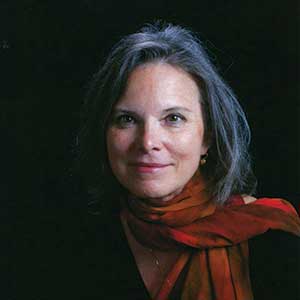 was born in Detroit in 1950. She is the author of five books of poetry: Gathering the Tribes, which received the Yale Younger Poets Award; The Country Between Us, chosen as the Lamont Selection of the Academy of American Poets; The Angel of History, which won the Los Angeles Times Book Award; Blue Hour, a finalist for the National Book Critics Circle Award; and In the Lateness of the World. She has translated Flowers from the Volcano and Sorrow, by Claribel Alegría; The Selected Poems of Robert Desnos (with William Kulik); and Mahmoud Darwish’s Unfortunately, It Was Paradise (with Munir Akash). She compiled and edited Against Forgetting: Twentieth-Century Poetry of Witness (Norton, 1993). She has received three fellowships from the National Endowment for the Arts, a John Simon Guggenheim Fellowship, a Lannan Foundation Fellowship, and other literary and teaching awards, including the Robert Creeley Award in 2005. She has been a human rights activist for thirty years and in 1998 was presented the Edita and Ira Morris Hiroshima Foundation Award for Peace and Culture in Stockholm for her work on behalf of human rights and the preservation of memory and culture. In 2004 she became a trustee of the Griffin Trust for Excellence in Poetry, Canada’s premier poetry award. She serves as executive vice president of Cities of Refuge, North America. Recent books include a memoir, The Horse on Our Balcony (2009), and a book of essays (2010). A former Lannan Visiting Professor of Poetry, Forché is Professor of English and director of the Lannan Center for Poetics and Social Practice at Georgetown University. Nominated by Valzhyna Mort / Representative work: Selections from In the Lateness of the World (forthcoming) and other poems
was born in Detroit in 1950. She is the author of five books of poetry: Gathering the Tribes, which received the Yale Younger Poets Award; The Country Between Us, chosen as the Lamont Selection of the Academy of American Poets; The Angel of History, which won the Los Angeles Times Book Award; Blue Hour, a finalist for the National Book Critics Circle Award; and In the Lateness of the World. She has translated Flowers from the Volcano and Sorrow, by Claribel Alegría; The Selected Poems of Robert Desnos (with William Kulik); and Mahmoud Darwish’s Unfortunately, It Was Paradise (with Munir Akash). She compiled and edited Against Forgetting: Twentieth-Century Poetry of Witness (Norton, 1993). She has received three fellowships from the National Endowment for the Arts, a John Simon Guggenheim Fellowship, a Lannan Foundation Fellowship, and other literary and teaching awards, including the Robert Creeley Award in 2005. She has been a human rights activist for thirty years and in 1998 was presented the Edita and Ira Morris Hiroshima Foundation Award for Peace and Culture in Stockholm for her work on behalf of human rights and the preservation of memory and culture. In 2004 she became a trustee of the Griffin Trust for Excellence in Poetry, Canada’s premier poetry award. She serves as executive vice president of Cities of Refuge, North America. Recent books include a memoir, The Horse on Our Balcony (2009), and a book of essays (2010). A former Lannan Visiting Professor of Poetry, Forché is Professor of English and director of the Lannan Center for Poetics and Social Practice at Georgetown University. Nominated by Valzhyna Mort / Representative work: Selections from In the Lateness of the World (forthcoming) and other poems
Aminatta Forna
Aminatta Forna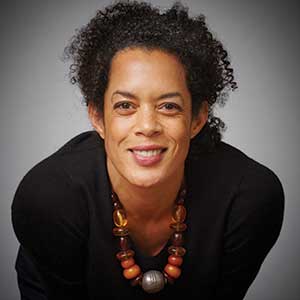 was born in Scotland, raised in Sierra Leone and Britain, and now lives in southeast London. She is the award-winning author of the novels The Hired Man, The Memory of Love, and Ancestor Stones. She also has written a memoir, The Devil That Danced on the Water. Forna is a professor of creative writing at Bath Spa University, and in 2013 held the post of Sterling Brown Distinguished Visiting Professor at Williams College, Massachusetts. In 2014 she was named winner of the Donald Windham–Sandy M. Campbell Literature Prize awarded annually by Yale University. She has also published short stories and was a finalist for the 2010 BBC National Short Story Award. Her essays and articles have appeared in Granta, The Times, The Observer, and Vogue. Her books have been translated into fifteen languages. Forna is a fellow and council member of the Royal Society of Literature and sits on the board of the National Theatre of Great Britain, the general committee of the Royal Literary Fund, and the council of the Caine Prize for African Writing. She has acted as a judge for a number of literary prizes and was most recently a judge for the 2013 Man Booker International Prize. Nominated by Mukoma Wa Ngugi / Representative work: The Memory of Love
was born in Scotland, raised in Sierra Leone and Britain, and now lives in southeast London. She is the award-winning author of the novels The Hired Man, The Memory of Love, and Ancestor Stones. She also has written a memoir, The Devil That Danced on the Water. Forna is a professor of creative writing at Bath Spa University, and in 2013 held the post of Sterling Brown Distinguished Visiting Professor at Williams College, Massachusetts. In 2014 she was named winner of the Donald Windham–Sandy M. Campbell Literature Prize awarded annually by Yale University. She has also published short stories and was a finalist for the 2010 BBC National Short Story Award. Her essays and articles have appeared in Granta, The Times, The Observer, and Vogue. Her books have been translated into fifteen languages. Forna is a fellow and council member of the Royal Society of Literature and sits on the board of the National Theatre of Great Britain, the general committee of the Royal Literary Fund, and the council of the Caine Prize for African Writing. She has acted as a judge for a number of literary prizes and was most recently a judge for the 2013 Man Booker International Prize. Nominated by Mukoma Wa Ngugi / Representative work: The Memory of Love
Ann-Marie MacDonald
Ann-Marie MacDonald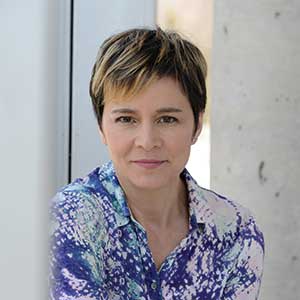 is an author, actor, and playwright. She was born in Baden Sölingen, in the former West Germany. After graduating from the National Theatre School of Canada, MacDonald moved to Toronto, where she immersed herself in the vibrant alternative theatre scene and simultaneously pursued a career in television and film. Her first solo-authored play, Goodnight Desdemona (Good Morning Juliet), premiered at Nightwood Theatre and was honored with the Chalmers Award, the Governor General’s Award, and the Canadian Authors’ Association Award. Her other produced dramatic work includes The Arab’s Mouth, the libretto for the chamber opera Nigredo Hotel, the book for the musical Anything That Moves (which garnered several Dora Awards, including Outstanding New Musical), and Belle Moral: A Natural History. In 1996 MacDonald’s first novel, Fall on Your Knees, was shortlisted for the Giller Prize, and won the People’s Choice Award and the Canadian Booksellers Association Libris Award for Fiction Book of the Year. MacDonald’s second novel, The Way the Crow Flies, was published in 2003. An international best-seller and finalist for the Giller Prize, it was also a Good Morning America Book Club pick. MacDonald has recently acted in celebrated stage productions of Cloud Nine (Mirvish Productions) and Top Girls (Soulpepper Theatre). She is currently at work on an adaptation of Hamlet for the Stratford Festival, with director Alisa Palmer and musician Torquil Campbell of the band STARS. Her new novel, Adult Onset, was published in 2014. MacDonald is married to Alisa Palmer and lives in Toronto and Montreal with their two children and one dog. Nominated by Padma Viswanathan / Representative work: Fall on Your Knees
is an author, actor, and playwright. She was born in Baden Sölingen, in the former West Germany. After graduating from the National Theatre School of Canada, MacDonald moved to Toronto, where she immersed herself in the vibrant alternative theatre scene and simultaneously pursued a career in television and film. Her first solo-authored play, Goodnight Desdemona (Good Morning Juliet), premiered at Nightwood Theatre and was honored with the Chalmers Award, the Governor General’s Award, and the Canadian Authors’ Association Award. Her other produced dramatic work includes The Arab’s Mouth, the libretto for the chamber opera Nigredo Hotel, the book for the musical Anything That Moves (which garnered several Dora Awards, including Outstanding New Musical), and Belle Moral: A Natural History. In 1996 MacDonald’s first novel, Fall on Your Knees, was shortlisted for the Giller Prize, and won the People’s Choice Award and the Canadian Booksellers Association Libris Award for Fiction Book of the Year. MacDonald’s second novel, The Way the Crow Flies, was published in 2003. An international best-seller and finalist for the Giller Prize, it was also a Good Morning America Book Club pick. MacDonald has recently acted in celebrated stage productions of Cloud Nine (Mirvish Productions) and Top Girls (Soulpepper Theatre). She is currently at work on an adaptation of Hamlet for the Stratford Festival, with director Alisa Palmer and musician Torquil Campbell of the band STARS. Her new novel, Adult Onset, was published in 2014. MacDonald is married to Alisa Palmer and lives in Toronto and Montreal with their two children and one dog. Nominated by Padma Viswanathan / Representative work: Fall on Your Knees
Guadalupe Nettel
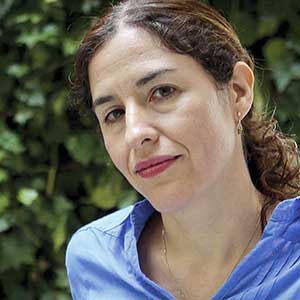 Born in Mexico City in 1973, Guadalupe Nettel is a prolific young Mexican author and a regular contributor to both Spanish- and French-language magazines and newspapers, including Letras Libres, Hoja por hoja, L’atelier du roman, and L’inconvénient. Her first book to be published in English is a collection of short stories titled Natural Histories (Seven Stories, 2014), for which she won the Rivera del Duero prize in Spain. Her second English translation, an autobiographical fiction, was published in 2015 and is titled The Body Where I Was Born. In 2006 she was voted one of thirty-nine most important Latin American writers under the age of thirty-nine at the Bogotá Hay Festival. She has lived in Montreal and Paris and is now based in México City. She is the author of Juegos de artificio (1993; False games), Les jours fossiles (2002; Fossil days), El huésped (2006; The guest), Pétalos y otras historias incómodas (2008; Petals and other awkward stories), El cuerpo en que nací (2011; Eng. The Body Where I Was Born, 2015), El matrimonio de los peces rojos (2013; Eng. Natural Histories, 2014); and Después del invierno (2014; After winter). She is the recipient of the Premio Herralde, third place, for El huésped, and the 2008 Premio Antonin Artaud and the 2007 Gilbert Owen Short Story Prize in Mexico for Pétalos. Nominated by Valeria Luiselli / Representative work: The Body Where I Was Born
Born in Mexico City in 1973, Guadalupe Nettel is a prolific young Mexican author and a regular contributor to both Spanish- and French-language magazines and newspapers, including Letras Libres, Hoja por hoja, L’atelier du roman, and L’inconvénient. Her first book to be published in English is a collection of short stories titled Natural Histories (Seven Stories, 2014), for which she won the Rivera del Duero prize in Spain. Her second English translation, an autobiographical fiction, was published in 2015 and is titled The Body Where I Was Born. In 2006 she was voted one of thirty-nine most important Latin American writers under the age of thirty-nine at the Bogotá Hay Festival. She has lived in Montreal and Paris and is now based in México City. She is the author of Juegos de artificio (1993; False games), Les jours fossiles (2002; Fossil days), El huésped (2006; The guest), Pétalos y otras historias incómodas (2008; Petals and other awkward stories), El cuerpo en que nací (2011; Eng. The Body Where I Was Born, 2015), El matrimonio de los peces rojos (2013; Eng. Natural Histories, 2014); and Después del invierno (2014; After winter). She is the recipient of the Premio Herralde, third place, for El huésped, and the 2008 Premio Antonin Artaud and the 2007 Gilbert Owen Short Story Prize in Mexico for Pétalos. Nominated by Valeria Luiselli / Representative work: The Body Where I Was Born
Don Paterson
Don Paterson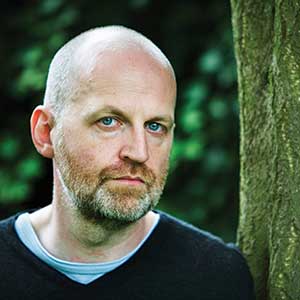 was born in Dundee, Scotland, in 1963. He moved to London in 1984 to work as a jazz musician and began writing poetry around the same time. His collections of poetry include Nil Nil (Faber, 1993), God’s Gift to Women (Faber, 1997), The Eyes (after Antonio Machado, Faber, 1999), Landing Light (Faber, 2003; Graywolf, 2004), Orpheus (a version of Rilke’s Die Sonette an Orpheus, Faber, 2006), and Rain (Faber, 2009; Farrar, Straus and Giroux, 2010). He has also published two books of aphorisms, The Book of Shadows (Picador, 2004) and The Blind Eye (Faber, 2007), and the compendium Best Thought, Worst Thought (Graywolf, 2008). He has also edited a number of anthologies, including 101 Sonnets (Faber, 2000), a selection of Robert Burns, and New British Poets (with Charles Simic, Graywolf, 2004). His poetry has won a number of awards, including the Forward Prize for Best First Collection, the Whitbread Poetry Prize, the Geoffrey Faber Memorial Award, and the T. S. Eliot Prize on two occasions. Most recently, Rain won the 2009 Forward Prize. He is a fellow of the Royal Society of Literature and a fellow of the English Association; he received the OBE in 2008 and the Queen’s Gold Medal for Poetry in 2010. As well as poetry and aphorism, he has written drama for radio and theatre, including the melodrama The Land of Cakes for Dundee Rep, a collaboration with the Scottish composer Gordon McPherson. Nominated by Amit Majmudar / Representative work: Rain
was born in Dundee, Scotland, in 1963. He moved to London in 1984 to work as a jazz musician and began writing poetry around the same time. His collections of poetry include Nil Nil (Faber, 1993), God’s Gift to Women (Faber, 1997), The Eyes (after Antonio Machado, Faber, 1999), Landing Light (Faber, 2003; Graywolf, 2004), Orpheus (a version of Rilke’s Die Sonette an Orpheus, Faber, 2006), and Rain (Faber, 2009; Farrar, Straus and Giroux, 2010). He has also published two books of aphorisms, The Book of Shadows (Picador, 2004) and The Blind Eye (Faber, 2007), and the compendium Best Thought, Worst Thought (Graywolf, 2008). He has also edited a number of anthologies, including 101 Sonnets (Faber, 2000), a selection of Robert Burns, and New British Poets (with Charles Simic, Graywolf, 2004). His poetry has won a number of awards, including the Forward Prize for Best First Collection, the Whitbread Poetry Prize, the Geoffrey Faber Memorial Award, and the T. S. Eliot Prize on two occasions. Most recently, Rain won the 2009 Forward Prize. He is a fellow of the Royal Society of Literature and a fellow of the English Association; he received the OBE in 2008 and the Queen’s Gold Medal for Poetry in 2010. As well as poetry and aphorism, he has written drama for radio and theatre, including the melodrama The Land of Cakes for Dundee Rep, a collaboration with the Scottish composer Gordon McPherson. Nominated by Amit Majmudar / Representative work: Rain
Dubravka Ugrešić
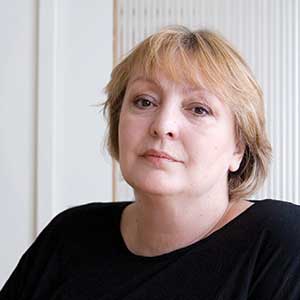 Over the past three decades, Dubravka Ugrešić has established herself as one of Europe’s most distinctive novelists and essayists. From her early postmodernist excursions, to her elegiac reckonings in fiction and the essay with the disintegration of her Yugoslav homeland and the fall of the Berlin Wall, through to her more recent writings on popular and literary culture, Ugrešić’s work is marked by a rare combination of irony, polemic, and compassion. In 1991, when war broke out in the former Yugoslavia, Ugrešić took a firm antiwar stance, critically dissecting retrograde Croatian and Serbian nationalism, the stupidity and criminality of war, becoming a target for nationalist journalists, politicians, and fellow writers in the process. Subjected to prolonged public ostracism and persistent media harassment, she left Croatia in 1993. In an exile that has in time become emigration, her books have been translated into over twenty languages. She is the winner of several major literary prizes, most recently the 2012 Jean Améry Essay Prize, awarded for her essayistic work as a whole. Karaoke Culture (2011) was a finalist for the National Book Critics Circle Award for Criticism. Her newest collection of essays is Europe in Sepia (2014). Ugrešić lives in Amsterdam. Nominated by Alison Anderson / Representative work: The Museum of Unconditional Surrender
Over the past three decades, Dubravka Ugrešić has established herself as one of Europe’s most distinctive novelists and essayists. From her early postmodernist excursions, to her elegiac reckonings in fiction and the essay with the disintegration of her Yugoslav homeland and the fall of the Berlin Wall, through to her more recent writings on popular and literary culture, Ugrešić’s work is marked by a rare combination of irony, polemic, and compassion. In 1991, when war broke out in the former Yugoslavia, Ugrešić took a firm antiwar stance, critically dissecting retrograde Croatian and Serbian nationalism, the stupidity and criminality of war, becoming a target for nationalist journalists, politicians, and fellow writers in the process. Subjected to prolonged public ostracism and persistent media harassment, she left Croatia in 1993. In an exile that has in time become emigration, her books have been translated into over twenty languages. She is the winner of several major literary prizes, most recently the 2012 Jean Améry Essay Prize, awarded for her essayistic work as a whole. Karaoke Culture (2011) was a finalist for the National Book Critics Circle Award for Criticism. Her newest collection of essays is Europe in Sepia (2014). Ugrešić lives in Amsterdam. Nominated by Alison Anderson / Representative work: The Museum of Unconditional Surrender
Ghassan Zaqtan
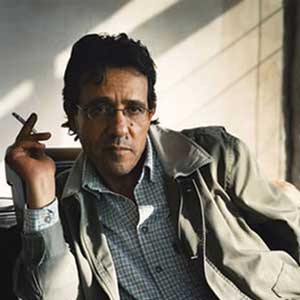 Born near Bethlehem, Palestinian poet, novelist, and editor Ghassan Zaqtan has lived in Jordan, Syria, Lebanon, and Tunisia. A poet who writes primarily in Arabic, Zaqtan is the author of numerous collections of poetry, including Early Morning (1980), Ordering Descriptions: Selected Poems (1998), and Like a Straw Bird It Follows Me (2012); the novel Describing the Past (1995); and the play The Narrow Sea, which was honored at the 1994 Cairo Festival. His verse collection Like a Straw Bird It Follows Me, translated by Fady Joudah, was awarded the Griffin Poetry Prize for 2013, and he was nominated for the 2014 Neustadt International Prize for Literature. In recognition of his achievement and contributions to Arabic and Palestinian literature, Zaqtan was awarded the National Medal of Honor by the Palestinian president in 2013. His name appeared for the first time in 2013 among the speculation list for the Nobel Prize in Literature. Zaqtan’s work has been translated into English, French, Italian, Norwegian, German, and other languages. A supporter of the Palestinian resistance movement, Zaqtan has edited the Palestine Liberation Organization’s literary magazine, Bayader, as well as the poetry journal Al-Soua’ra and the literary page of the Ramallah newspaper Al-Ayyam. Founding director of the House of Poetry in the West Bank city of Ramallah, Zaqtan has also served as director general of the Palestinian Ministry of Culture’s Literature and Publishing Department. He lives in Ramallah. Nominated by Wang Ping / Representative work: Like a Straw Bird It Follows Me
Born near Bethlehem, Palestinian poet, novelist, and editor Ghassan Zaqtan has lived in Jordan, Syria, Lebanon, and Tunisia. A poet who writes primarily in Arabic, Zaqtan is the author of numerous collections of poetry, including Early Morning (1980), Ordering Descriptions: Selected Poems (1998), and Like a Straw Bird It Follows Me (2012); the novel Describing the Past (1995); and the play The Narrow Sea, which was honored at the 1994 Cairo Festival. His verse collection Like a Straw Bird It Follows Me, translated by Fady Joudah, was awarded the Griffin Poetry Prize for 2013, and he was nominated for the 2014 Neustadt International Prize for Literature. In recognition of his achievement and contributions to Arabic and Palestinian literature, Zaqtan was awarded the National Medal of Honor by the Palestinian president in 2013. His name appeared for the first time in 2013 among the speculation list for the Nobel Prize in Literature. Zaqtan’s work has been translated into English, French, Italian, Norwegian, German, and other languages. A supporter of the Palestinian resistance movement, Zaqtan has edited the Palestine Liberation Organization’s literary magazine, Bayader, as well as the poetry journal Al-Soua’ra and the literary page of the Ramallah newspaper Al-Ayyam. Founding director of the House of Poetry in the West Bank city of Ramallah, Zaqtan has also served as director general of the Palestinian Ministry of Culture’s Literature and Publishing Department. He lives in Ramallah. Nominated by Wang Ping / Representative work: Like a Straw Bird It Follows Me

